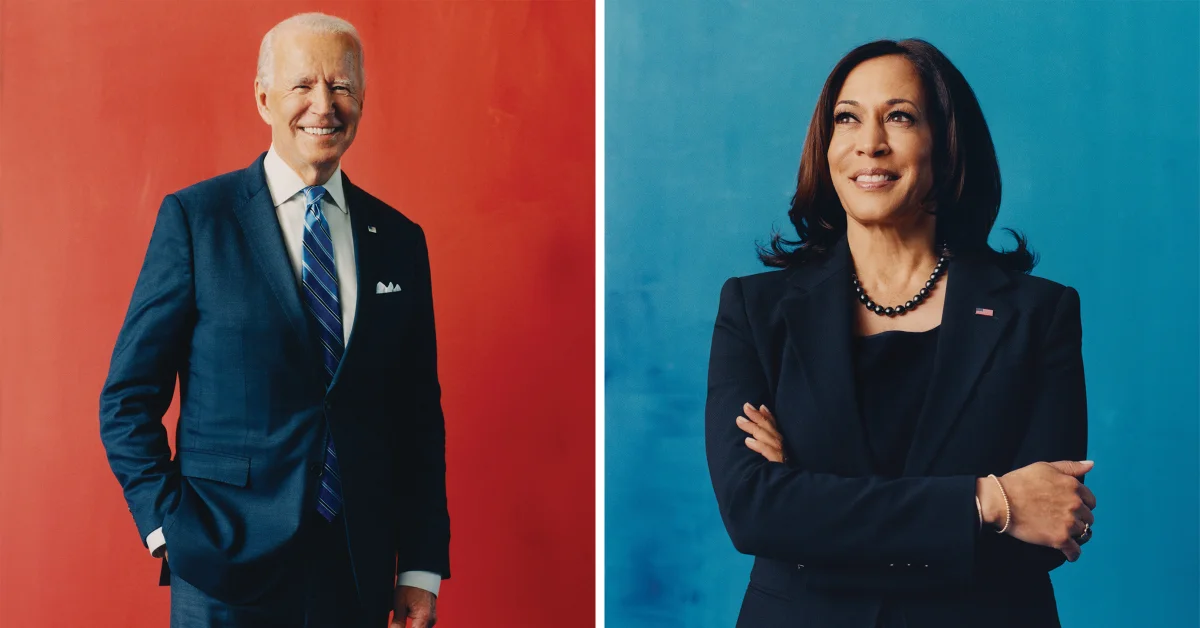This is becoming a major theme for many 2020 hopefuls.
In an effort to differentiate himself from the pack by moving as far to the left as he can on the political spectrum, Sen. Cory Booker (D-NJ) has now introduced a bill to the Senate that would study the payment of slavery reparations, reports Fox News.
On Monday, the senator said that the bill will study whether or not slavery reparations will help to alleviate past racial injustice in the United States.
“This bill is a way of addressing head-on the persistence of racism, white supremacy, and implicit racial bias in our country,” said Booker. “It will bring together the best minds to study the issue and propose solutions that will finally begin to right the economic scales of past harms and make sure we are a country where all dignity and humanity is affirmed.”
Booker added that slavery in this country fueled a subsequent system of white supremacy designed to keep black Americans from competing economically.
“Since slavery in this country, we have had overt policies fueled by white supremacy and racism that have oppressed African-Americans economically for generations,” Booker added. “Many of our bedrock domestic policies that have ushered millions of Americans into the middle class have systematically excluded blacks through practices like ‘G.I. Bill’ discrimination and redlining.”
As The Daily Wire argued back in 2016, slavery reparations are not only an impractical solution — but are also an economically impossible one.
“The reason reparations advocates struggle to make a case is because there is no possible way to do it,” Aaron Bandler wrote for The Daily Wire at the time. “There are numerous immigrants who have entered the U.S. who were not a part of enslaving blacks, and there were also blacks that owned slaves during that era. How would the government be able to have the resources to determine every single person who had slaveowner ancestors as well as ancestors who were slaves? What about those of mixed race? It’s impossible.”
Veteran economist Thomas Sowell has also argued that a majority of white people did not own slaves during slavery’s heyday. “Even during the era of slavery, most white people owned no slaves,” Sowell has written. “Are their descendants supposed to pay for the descendants of those who did?”
On top of that, Sowell also noted that even if slavery reparations were economically feasible, they would still fail to bring about the goal of helping black Americans. For instance, according to Sowell, reparations proponents claim that white supremacy created the black underclass while failing to address the fact that black Americans were largely rising economically prior to Lyndon Johnson’s anti-poverty programs kicked in during the 1960s:
But the poverty rate among blacks fell by half between 1940 and 1960, before any of the major federal civil rights legislation or the vast expansion of the welfare state under President Lyndon Johnson’s Great Society programs.
Between 1940 and 1960, black males’ number of years of schooling doubled. How surprising is it that doubling your education raises your income? In short, most blacks raised themselves out of poverty, but their leaders robbed them of this achievement and the respect it deserved — in the eyes of blacks and whites alike — by making it seem like a concession from the government and a product of agitation.
Slavery reparations have also been endorsed by other 2020 Democratic presidential candidates. Most recently, Indiana mayor Pete Buttigieg said he is open to the idea. “The country as a whole is effectively segregated by race and the resources are different. There is a direct connection between exclusion in the past and exclusion in the present,” he said.



Another Democ-RAT candy man, what a fuk’n joke! It is too bad that there are enough of the Leftist dumb-(m)asses that have been dumb-downed, drugged-up ( legal and illegal ) PC bullied, brainwashed and indoctrinated through the “sch – fool” system that this could actually become a reality and that is why I cry: REVOLUTION will be the end SOLUTION – like it or not or become a slave to the developing totalitarian state, fools!
I can’t believe any self respecting American, black or white, would vote anyone into office with this warped sense of history. I go with giving them all tickets back to Africa if they want it.
Someone assassinate this nigger, please.
Corey… Ypu are no Spartacus & you have zero rights to reparations. You’re pandering to blacks who want to believe you will get them a big fat check.
NO! Whatever you do, do not assinate Booker. That will instantly make him another martyr just like Martin Luther King and all the other black integrationists of the 60’s. The only way to stop this lunacy is to vote them out or vote in enough Representatives and Senators with common sense so these lunatics can be stopped cold. Killing any of them would be extremely counter-productive.
Phil in TX
How does Booker plan on making blacks than owned black slaves pay. What is his plan for black Africans that sold blacks into slavery. You see white people weren’t the only one to own black slaves.
Booker is to dumb to know about black history.
The Census of 1830 showed , a total of “3,776 free Negroes owned 12,907 But that Number could have doubled or even Tripled for slaves held by Blacks by 1860. So exactly Who is supposed to paying Reparation’s Oh I forgot Louis Farrahkan said it was Okay for a Black Man to Own a Black Man Hypocrisy at it’s BEST. Cory Booker when elected to Congress actually caused Washington DC to Smell Worse if that was even possible and allowed Newwark a Brief Breath of Fresh Air.
I want to know how a person who went to Stanford, got a Rhodes Scholarship to Oxford, then went to Yale Law School, became Mayor of a large city and is now a US Senator can claim racial injustice. Doesn’t his life, in fact, negate his spurious claim?
Since it was Democrats that started a war for slavery, I would posit the only ones paying reparations should be the Democrats and their party. Democrats hate guns, and want to outlaw private gun ownership, while their supporters are usually the perpetrators of mass shootings, so outlaw Democrats from owning guns…We could fix many of this country’s problems by holding Democrats responsible for THEIR own actions.
Another one trying to buy his votes. does anyone really believe he cares even about his own. as Omar would say “it’s about the benjamins baby”
Booker is a racist! He has done more to derail blacks from progressing than any one because they trusted that back stabbing SOB. Spartacus my ass..he is a mongrel dog!
Reparation sounds great for every one.my great great grandfather was a prisoner and made to work as a slave in a civil war prison camp and my wifes ancestors were American Indians and were forced off of their own property and marched all the way across this country on what is now called the trail of tears.think very carefully about this reparation ploy.what’s the reason the real reason behind reparation.Cory Booker it’s all about politicts with him and pushing the financially rewarding old idea of keeping whitey and African Americans at each others throats because when we are so busy hating each other we are not really watching the swamp scum in D.C. and that’s just what the swamp scum count on out of the American voting citizens.this democratic scandals has been being used for many many years more so against uneducated uninformed African Americans but that old trick is rapidly coming to a end as Hillary found out in 2016 so Hillary and her trick of putting African Americans back in the drawer till the next election and never fulfilling election promises made is a thing of the past.more African Americans voted Republican in 2016 than ever in the history of out great country and I believe those numbers will be even larger in 2020.it makes each one of us feel so good to think for our selves and be wright and see and receive the rewards of good decisions.what puts money in your pockets and protects our families and our way of life.think for your self.jgb
Corey Booker what a POS. You cowed down with the biggest Racist in this country, with tax evader Al Capone Sharpton Explain to me why I should have to pay for something that happened 200 years ago that I had nothing to do with, my grandfather had nothing to do with, my grandfathers grandfather had nothing to do with? I dont quite get your point. What about the people who never owned slaves, is the Democrat Party going to pay reparations to the black people for telling that for 60 years you were going to do something for them as a party and your party never did?
So, I would like to know his plan. Do we all need a DNA test done in order to collect? Or, we just say we have black in our gene pool? This is such lunacy. Reparations from 60-100 years ago? Pfffffffffffffft!
This fool is going to start one huge Civil War! He needs to go home and STAY there!
There will be NO Reparations!
He needs to get back with his boyfriend and forget this idea!!!!
Folks, we don’t want to get into this reparation thing. It’s a big black money hole. Look what’s happened in Canada where reparations are paid to the native population every time that population demands more and more from their government for some or any obscure reason that their lawyers can devise. The government hands out, the tax payer has no option but pay or be branded racist. This has taken away their natural independence, their ability to do for themselves and their mental well being. On the other hand reparations have allowed a very small group of people, namely lawyers, get very wealthy on the backs of others. Is this the kind of alienation we would wish upon our own black neighbors.